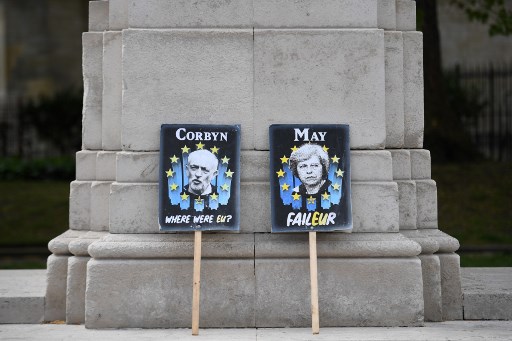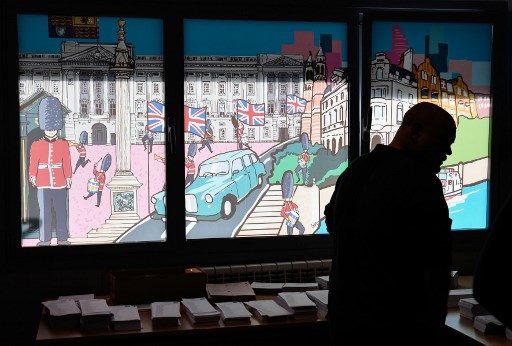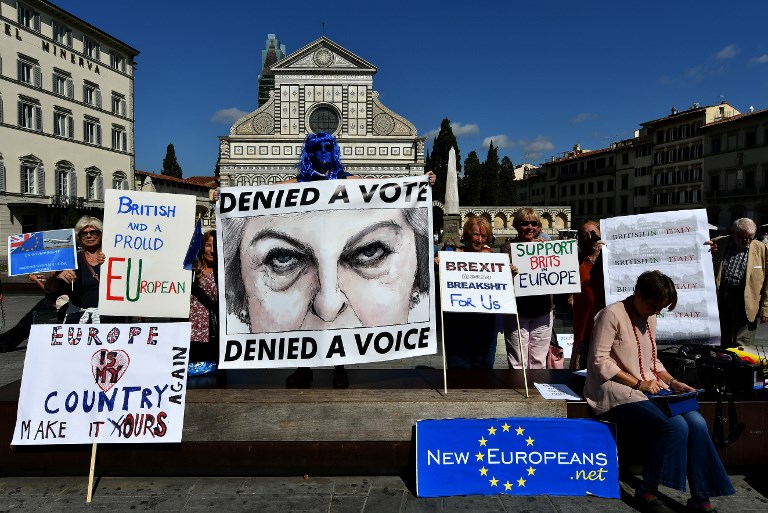
Sue Wilson Writes: How Brexit changed our lives
 Do you remember those innocent, peaceful days three years ago, before our daily existence was dominated by Brexit? When we wouldn’t have known what a Withdrawal Agreement was, even if it came up and bit us on the backside? Me neither!
Do you remember those innocent, peaceful days three years ago, before our daily existence was dominated by Brexit? When we wouldn’t have known what a Withdrawal Agreement was, even if it came up and bit us on the backside? Me neither!
BREXIT TURNED ME INTO A DIFFERENT PERSON
I was a political virgin before the June 2016 referendum. I took little interest in current affairs, and zero interest in the antics of the UK government. I felt perfectly content living in Spain and in ignorance, and felt that any decisions made in Westminster were of little consequence to me.
The referendum result shocked me out of my naivety and changed my life. It woke me from a self-induced, rather pleasant coma and, over time, turned me into a different person.
It turned me into a campaigner.
Before Brexit, I had never campaigned for anything in my life. I once attended an anti-apartheid rally in Trafalgar Square, several decades ago. That was the sum total of my political activism, and it lasted all of five minutes.
RAPID TRANSFORMATION TO ACTIVIST
I never set out to become an anti-Brexit campaigner, but I became increasingly involved. When I look back, I’m still surprised at the speed of my transformation. Within three months of engaging with the Bremain in Spain campaign, I was the chairperson.
Many Bremain members describe how Brexit has changed not only British society, but their own lives and natures as well. They speak of the damage it has done to their sense of security, their health and well-being, and the anxiety it causes about the future.
Many people explain how their post-Brexit relationships with family and friends reflect the divisiveness now experienced by UK society. Britain is no longer divided along party-political lines, but by how we feel about our wider European family.
I’ve heard people say they are quick to anger now; they’re more emotional, lacking in patience. I share those feelings entirely.
In the past, I always avoided confrontation. I kept calm and cool. Where politics was concerned, I never voiced an opinion – after all, I didn’t know what I was talking about! Now it’s difficult to shut me up – in fact, I’m not sure I have another topic of conversation!
Along the way, my language has become more choice. I understand, from talking to other Brexit-campaigners, that this is a common side-effect.
Walls are turning blue all over Spain and the UK, from the constant shouting and swearing at TV screens whenever May or Farage make an unwanted appearance.
NEW SKILLS AND A NEW PURPOSE
Brexit has made me a different person in many negative ways, but it has changed me for the better too. It has taught me new skills and given me the confidence to do many things I never thought I could do before. For example, I would never have imagined delivering a speech to a room of 100 people, let alone addressing tens of thousands.
Read the full story in Dispatches Europe












